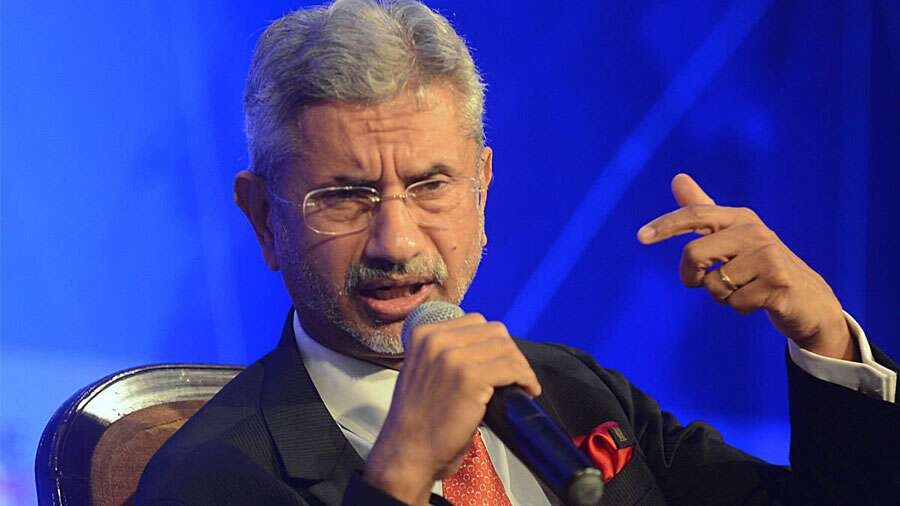External affairs minister S. Jaishankar on Tuesday cited the economic implications of the “Ukraine conflict” on energy and commodity prices to stress the need for an “Atmanirbhar Bharat”, the prize project of the Narendra Modi government to make India self-reliant.
Presenting a statement on the situation in Ukraine in both houses of Parliament, Jaishankar said: “The Ukraine conflict has major economic implications. Its impact on energy and commodity prices is already visible. The disruption of the global supply chain is expected to be significant. India has substantial dealings with both Russia and Ukraine. An assessment in this regard by the government is underway. However, the House will appreciate that there is all the more need for an Atmanirbhar Bharat.”
In the first detailed statement from the government on the evolving situation in Ukraine, Jaishankar also sought to underline the fact that there was a national consensus over the stance taken by India at international fora where it had refused to openly condemn Russia for attacking Ukraine but stressed the need for respecting territorial integrity and sovereignty of states.
He referred to the meeting of the consultative committee of his ministry earlier this month where most Opposition parties backed the government’s decision not to pick sides in super-power politics in what is widely perceived to be a continuation of the Nehruvian legacy of non-alignment to flag the national consensus on this issue.
This consensus was evident in the Rajya Sabha where members were allowed to seek clarifications on the minister’s statement. The government’s effort to evacuate Indians from Ukraine was acknowledged by all parties in the Opposition. If there were questions, it essentially pertained to the delay in issuing the first travel advisory to Indians and the future of the students who had fled Ukraine midway between their academic courses.
Several MPs, including T. Siva from the DMK, Thambi Durai from the AIADMK and John Brittas from the CPM, wanted to know how the government planned to address the bleak future of these students who had gone to study medicine in Ukraine. “The minister has not said anything on this in his statement,” Brittas said while Siva pointed out that the students had risked their lives to pursue their courses.
In his statement, the minister had said: “Despite our efforts (the four advisories between February 15 and 24), however, a large majority of students elected to continue staying in Ukraine. We must understand their predicament in this regard. There was a natural reluctance to leave educational institutions and affect their studies. Some universities actively discouraged and showed reluctance to offer on-line studies. Many of them received conflicting advice regarding safety.
“The challenges of travelling back may have also been a factor. In the period leading to February 24, the political signals were confusing as well. Public urgings not to be taken in by alarmism and reports of force withdrawals created a confusing picture. The net result was that about 18,000 Indian citizens were caught in the midst of conflict when it began.”
While responding to clarifications, Jaishankar said till the day the conflict began, Ukrainian President Volodymyr Zelensky was urging people not to get alarmed and leave the country.
His statement also detailed the entire evacuation exercise that also brought to India 150 citizens of 18 countries, including Bangladesh and Nepal. “Many of the Ukrainian nationals that are family members of Indian nationals have also been evacuated. We also provided free passage to Ukrainian nationals from India to Poland in our evacuation flights.”











